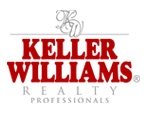Investing in residential and commercial rental property
Buying investment property is an entirely different experience than buying your primary residence. Look at buying an investment property as a business. When you go to buy your own home, you usually have a wish list and emotions tied to it. When you buy an investment property, the important question is, “What makes financial sense?”
If you're thinking about investing in a rental property, experts say low home prices combined with low interest rates make this the best time in years to become a real-estate investor. When money is cheap to borrow and the houses are cheap to buy, it's a good time to invest, as long as you keep in mind these five key tips:
Partner with experience. As an investor, you should find a real estate agent experienced in investment property that is also familiar with the local market to find promising properties. The team of Tom Verhelst and Karen Zell at HomesAndLakeshore.com are experienced investors themselves, and know the market well. "We expect to do business with you again and therefore are going to be much more careful with what we recommend," Tom says. “Relationships are important to us,” adds Karen. “Investment clients gain from our firsthand knowledge and experience.”
What is a good investment fit for you? Do you want to become a landlord, or would you rather restore and resell properties? Are you interested in apartment buildings and other commercial real estate, or in buying land that can be developed? First-time real-estate investors may want to start with residential housing, since commercial real estate and land development still face challenging market conditions. It’s important to determine what type of property fits your strategy.
Consider location. If you have hopes of renting a property out, be pro-active in investigating your competition. What other rental properties are available and what are the terms? Areas where there are fewer people and a small pool of potential renters may be a difficult investment. If you would like to buy, fix up and re-sell, put yourself in the place of the seller at the time of purchase. You can make all the improvements, but you can’t change location or access to amenities. The more an area has to offer, the more likely it is to be attractive to future renters or buyers.
Prepare for contingencies. Along with the perks of investing come some ups and downs, such as paying the mortgage during a rental vacancy or not selling a rehab property as quickly as you would have liked. A general rule of thumb is to have six months of mortgage payments saved up, and also budget for annual repairs and maintenance. Having this cushion will aide you if there is an emergency repair that exceeds your maintenance budget, rental vacancies, and time on the market when you go to re-sell.
Get your ducks in a row. Line up all of the maintenance resources you will need while you are setting up your investment. Not only will this give you a quick access when you need repairs, it will also help you budget for them by knowing service contractors local rates. You may also want to know an attorney that specializes in tenant issues, just in case, and what property management firms are available in case you want to delegate some management responsibilities. Consult your tax preparer to understand the effects of investing.
There are a few things to consider to be successful with investment property. Please contact the experienced team of Tom Verhelst and Karen Zell at HomesAndLakeshore.com to discuss your investment property ideas.
Click here for help preparing your wishlist
Click here to search properties
Click here to contact us
 |
Keller Williams Realty Professionals | |
| Licensed in Minnesota | ||
| Copyright
© 2000-2024 Keller Williams ® Realty. - a real estate franchise company.
All information provided is deemed reliable but is not guaranteed and should be independently verified.
Properties subject to prior sale or rental. Each brokerage is independently owned and operated. Independently owned and operated by Keller Williams Realty Brainerd Lakes, 14091 Baxter Dr. Ste #116, Baxter, MN 56425 |
||
